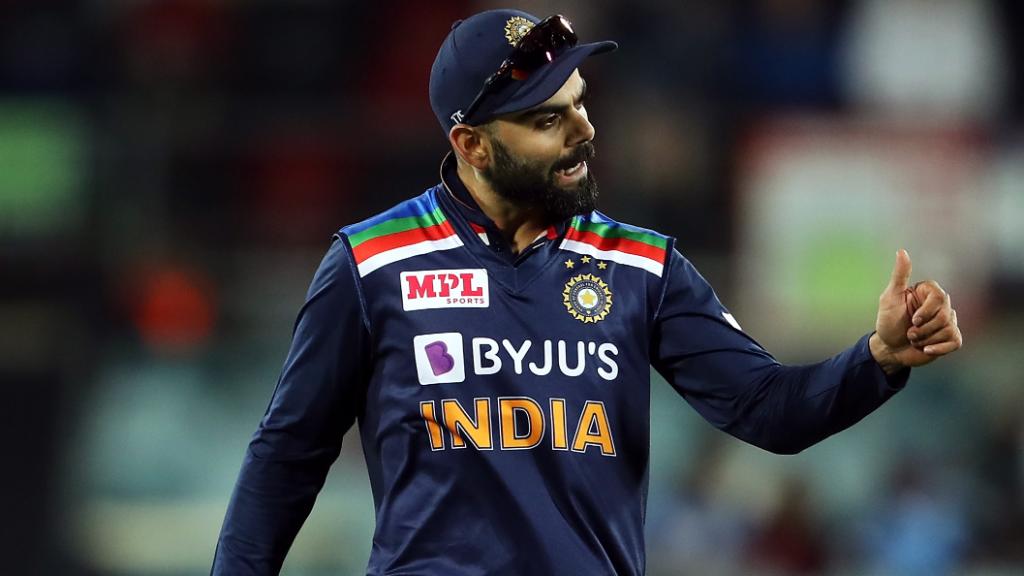'You do not need to a be captain to be the leader', says Virat Kohli
Virat Kohli has stated that one does not need to be a captain of a team to play the role of a leader within a group. The former Indian captain further added that moving on is also a part of leadership, and a cricketer has to embrace all kinds of roles and opportunities while playing for the team.

Virat Kohli recently stepped down as India Test captain, a day after the national side suffered a 1-2 defeat against South Africa in a three-match red-ball series. Earlier, after the conclusion of the T20 World Cup 2021, Kohli had relinquished his T20I captaincy, and a month later, ahead of the South Africa tour, the 33-year-old was sacked from ODI leadership as BCCI prefered a single skipper for the white-ball format.
Kohli has been the most successful Test skipper of India with 40 wins from 68 matches, and the right-hand batsman played a crucial role in developing the national side to a powerful team in the longest format of the game. Under the leadership of Kohli, India won seven Tests in SENA countries, the most by an Asian captain in the game of cricket. India recently announced their squad for the home series against West Indies, starting from February 6, and Virat Kohli has also been included in the team.
Meanwhile, Virat Kohli stated that one does not need to be a captain of a team to play the role of a leader within a group. The former India skipper further added that everything has a time period, and one must be aware of it.
"See, I think firstly you need to have a complete understanding of what you set out to achieve and whether you have achieved those targets or not. Everything has a tenure and time period, so you have to be aware of it. As a batter, you might be able to give more to the team, so take pride in that," said Kohli on an episode of 'Fireside Chat with VK'.
"You do not need to be a captain to be the leader. When MS Dhoni was in the team, it was not like he was not the leader, he was still the guy from whom we wanted to have inputs. To win or not win is not in your hands, the striving for excellence and to be better every day, is not something you can do short term. When it comes to a culture, it will last beyond your playing years and your responsibility," he added.
Kohli reckoned that moving on is also a part of leadership, and a cricketer has to embrace all kinds of roles and opportunities while playing for the team.
"To add to that, moving on is also a part of leadership, to understand the right time to do that. I think one has to embrace all kinds of roles and opportunities. I have played under MS Dhoni for a while and then I became the captain, my mindset has been the same all this while. I always thought like a captain when I was just a player in the team.
"I think it is very important to be aware of what you think about yourself. At the end of the day, if you have more responsibility, you know you can have a different vision so you need to stay true to yourself. If I know my game is not where it should be, then I do not need someone to push me, I am myself aware of it," said Kohli.
At home, India did not lose or draw a single Test series under the leadership of Kohli, and the national side won 16 away Tests during the right-hand batsman's captaincy stint. Kohli stated that communication is the most important thing, and that has helped him to balance everything while captaining India.
"Communication is the most important thing, you cannot cut off someone saying I do not need your point of view, you can respectfully say I am in a good space and if there is help to be taken, then I will reach out to you. That sort of balance has worked out for me," he added.
Kohli further reckoned that when he became the captain, his focus was on cultural change in the national team.
"Culture is a very difficult thing to change but I have experienced in any field in India it is important to set the culture from the top and that is how things have had an impact in our society. When I became the captain, my focus was on cultural change.
"I knew we do not lack in skill, I was thinking about maximising the talent to its potential. I wanted to not confine my vision and if you want to expand it, then you need culture. Culture requires you to work hard every day. It is a constant process, culture is more important than strategy. As a captain, I was more focused on trying to bring in a culture of we are capable of winning from anywhere," he added.

Comments
Sign up or log in to your account to leave comments and reactions
0 Comments